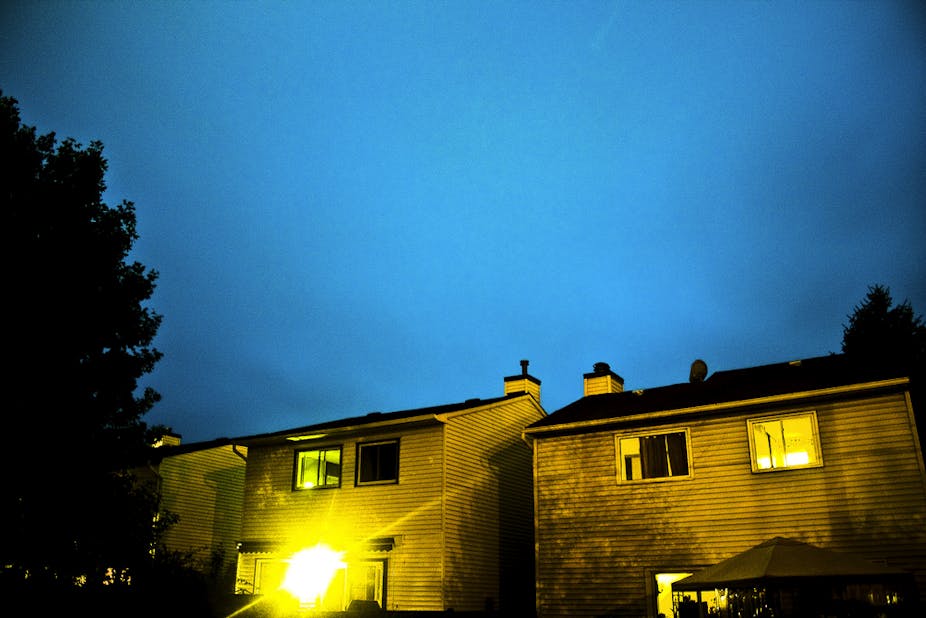Public housing tenants struggling with their bills will well understand NSW Community Services Minister Goward’s concern over the rising costs of nails and pots of paint. According to the minister, the carbon tax will push the price of household maintenance up; this is the reasoning behind an increase in public housing rents. But what’s fair about the state government passing its own carbon tax costs on to those least able to afford it?
To make matters worse, Ms Goward also announced that the imminent carbon tax compensation payments from the federal government will be included as part of a tenant’s assessable income. The state government may just be trying to score cheap points off the feds. But we should all be concerned about the social justice implications of framing the debate in this way.
For a start, more of the electricity price hikes are coming from infrastructure costs than from the carbon tax. A particular bottleneck and driver of change is the summer peak demand for air-conditioning, which low income households are less likely to use. All households are feeling the impact of increased electricity prices, but the pinch is disproportionately tighter if you are poor.
The same goes for the carbon tax. There is no cost-free way to make the necessary transition to lower greenhouse gas emissions. But as a community we need to find fairer ways to share these costs.
We also need to share the work. If you are economically comfortable and well educated, and think you are already carrying an extra burden, think again. Research shows clearly that the poor are doing the heavy lifting on a range of sustainability issues.
Our survey research shows that households earning less than $250 per week are statistically more likely to undertake sustainable household practices. They switch off lights in unoccupied rooms and put on extra layers of clothing before turning up the heating. They are more likely to repair than replace clothing. They are less likely to use an air-conditioner in summer, and much more likely to save water by taking shorter showers.
Not all such households profess “green” attitudes or sensibilities. And the poorest households were most likely to be “uninterested” in climate change as an issue. Ethnographic research throws light on this apparent conundrum. Often they are influenced instead by generational or socioeconomic backgrounds of frugality and thrift. They hate waste, and have many creative ways to save and reuse materials and stuff.
In contrast, households earning over $1700 per week are over-represented in the group undertaking fewer sustainable practices. Affluent well-educated households are more likely to profess pro-environmental attitudes, but their high levels of consumption make practical sustainability more difficult for them. They are more likely to own two or more fridges, and plasma screen TVs. Baby boomers are the least likely to be sceptical about climate change, but the most likely to fly often.
We are used to thinking about this in an international context; for example, comparing per capita emissions between Australia (high) and China (low). We are less inclined to acknowledge that there are also substantial disparities between Australian households.
The poor – particularly the elderly - are also more vulnerable to the impacts of climate change. They suffer heat stress in summer, and have to make hard choices between heating and eating in winter.
Most of us know people with cupboards or garages full of things that “might come in handy”. They might be Grandma, or the old guy next door. They are not all poor, and I am not suggesting we should celebrate their poverty. Rather, these unheralded vernacular practices – honed in diverse socioeconomic, generational and ethnic circumstances - provide cultural resources that we should acknowledge and draw on. We should celebrate their contribution towards helping us think about how to do things differently.
There are no easy answers here, but a double whammy for public housing tenants is surely not one of them. If the state government decreases tenant resilience by passing on the increased costs, they will end up paying more elsewhere, for example in the health budget.
We are all in this together, and need to find ways to share both the costs and the work of responding to climate change. We certainly should not be putting extra costs on that segment of the community who are already doing more than their share of the work.

